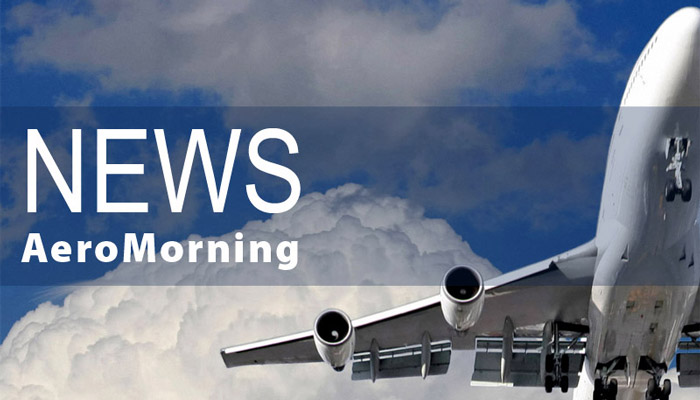CNES AND ONERA STEP UP COOPERATION ON NEW-GENERATION ORBITAL SYSTEMS
As longstanding partners in space research, CNES and ONERA are joining forces and combining their expertise to address new challenges in the fields of launchers, satellites and space data applications.
The bilateral meeting on 8 April attended by the agencies’ presidents reviewed progress on the many joint initiatives they are working on together. Two new PIC programmes of shared interest were also signed to support research actions co-funded by the two agencies in the domain of orbital systems, following the renewal of their 2015 framework agreement last year that has stepped up cooperation significantly.
In the wake of other PIC programmes that have recently got underway—PERF2 for radiofrequency propagation, MATEO for optical ground-to-satellite links and C3PO to model combustion of the oxygen/methane propellant combination chosen for the future Prometheus engine of ESA’s launchers—CNES and ONERA have signed two new agreements:
- COSOR-2 is the second phase of the COSOR orbital system controls programme, which in the space of a few years has succeeded in developing more-robust non-linear control techniques for a range of
applications including complex, hard-to-predict behaviour like sloshing of liquid propellants in satellite fuel tanks and real-time control of robotic subsystems. Planned to last five years, this new phase aims to help mature advanced control systems able to handle multiple scenarios (e.g. a manipulator arm deploying a mirror) for autonomous assembly on orbit, paving the way for new-generation space system designs. - LEONIDAS—for experimentaL and numErical degradatiON study of space debrIs During AtmoSpheric entry—is devoted to studying aerothermodynamic degradation of debris during re-entry into Earth’s
atmosphere. This new programme addresses the vital need to reduce risks to people and property, notably with the proliferation of debris in low Earth orbit driven by the burgeoning NewSpace sector and the advent of large satellite constellations. Extending the agencies’ multi-year cooperation in this area, LEONIDAS aims in particular to better understand and model the behaviour of materials in atmospheric re-entryconditions, and to develop new materials to improve degradability of satellite structures (design for demise).
Franck Lefèvre, ONERA’s Technical and Programmes Director, commented: “The two new PIC programmes signed by CNES and ONERA are committing our agencies to address future-facing topics and trends like onorbit assembly and controlled re-entry of space debris. The two areas covered by these PICs mirror two of the
24 roadmaps that ONERA has established, making our national space R&T community a leading global player in handling the most complex physical phenomena.”
Jean-Claude Souyris, CNES’s Deputy Director of Innovation, Applications and Science, added: “Be it research into space robotics for on-orbit assembly or design of materials for controlled break-up, CNES and ONERA are combining their efforts and expertise to build the space systems of the future that will maintain France and
Europe’s industrial competitiveness while ensuring sustainable management of Earth orbits.”
About CNES
CNES (Centre National d’Etudes Spatiales) is the government agency responsible for shaping France’s space policy and executing it in Europe. Its task is to conceive and orbit satellites, invent the space systems of the future and nurture new services to aid us in our daily lives. Founded in 1961, it is the initiator of major space projects, launch vehicles and satellites, and the partner of choice for industry fuelling innovation. CNES comprises some 2,500 men and women with a passion for space working to open up new and infinite fields of applications in five core areas of focus: Ariane, science, Earth observation, telecommunications and defence.
It is a key player driving technology innovation, economic development and industrial policy for the nation. It also fosters scientific collaborations and has forged numerous international partnerships. France, represented by CNES, is the leading contributor to the European Space Agency (ESA).
About ONERA, the French aerospace research agency
ONERA, a central player in aeronautical and space research, employs around 1,950 people. Under the auspices of the French Ministry of Armed Forces, it has a budget of €236 million, more than half of which
comes from commercial contracts. As the French expert in aerospace technologies, ONERA prepares tomorrow’s defences, meets the aerospace challenges of the future and contributes to the competitiveness of the European aerospace industry. It masters all the disciplines and technologies in its aerospace fields. All major civil and military aerospace programmes in France and Europe are rooted in ONERA’s DNA, including Ariane, Airbus, Falcon, Rafale, missiles, helicopters, engines and radars. Its world-renowned, prize-winning
researchers mentor many PhD students. Source: CNES





Be the first to comment on "CNES AND ONERA STEP UP COOPERATION"